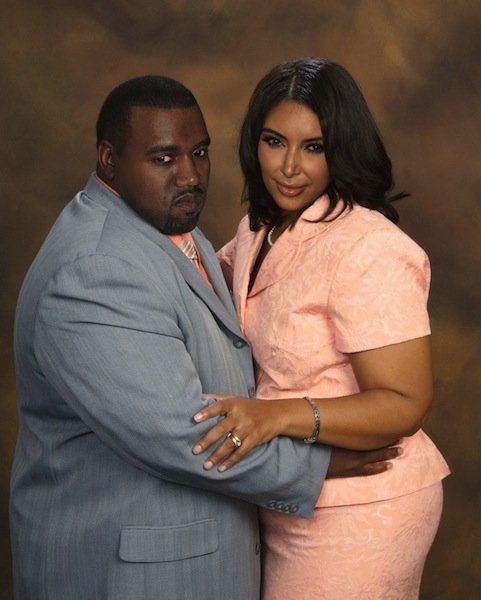Another day, another poll indicating that the devastating Bain attack ad and the “go for the jugular” targeting of Romney’s tax returns are, as yet, still not resonating nationally with likely voters. According to a USA Today/Gallup poll in the field from last Thursday through Sunday, “by more than 2-1, 63%-29%, those surveyed say Romney’s background in business, including his tenure at the private equity firm Bain Capital, would cause him to make good decisions, not bad ones, in dealing with the nation’s economic problems over the next four years.” The persistent polling results belie the oft-tweeted claim that the Obama ad campaign has “swift boated” Romney by turning his supposed strength into a weakness, much as the Bush campaign allegedly did to John Kerry’s Vietnam record in 2004. It may be, however, that the ad campaign is resonating more strongly in specific swing states, like Ohio where Obama has been outspending Romney so far. Even here, however, the evidence is far from conclusive; the Pollster.com trend line for Ohio polls has Romney trailing Obama by 2.5%, 47.2%-44.7%. On June 5th, just before the Bain attacks, Obama led Romney there by 3.3%.
In light of the evident failure of the Bain attacks to register so far, several readers have posted comments inquiring about the relative impact of “campaign effects” and election “fundamentals” more generally. In that vein, Will asks, “So what, if anything, SHOULD I pay attention to that doesn’t have to do with the economy? If all that matters is the economy, a force which remains outside the control of either presidential candidate, would you say campaigns themselves are essentially useless?”
Let me be clear. When it comes to influencing the presidential vote, campaigns are not “useless”. In fact they do matter – but not in the way that journalists and partisan pundits often assume. To begin, they are important for rallying the base and getting out the vote more generally. One way they do this is by framing real world events in a way that appeals to their partisans – “Romney’s vulture capitalism contributed to the financial collapse” – but which also might convince independents to vote for a particular candidate. Now, these sound like very important effects, just as many reporters would have us believe. Indeed, as a counterfactual, let us imagine a world, as Carlisle Rainey contemplates, in which only one side bothers campaigning. What, as JTTX asks me in a twitter comment, would our forecast models say about the relative impact of campaigns then? The answer, I think, is that the side doing the campaigning would have an advantage (although perhaps not as large as one might think!)
But I don’t believe that counterfactual is the correct way to think about campaign effects and, like John Sides, I don’t think most reporters think this either. The reality is that most journalists are interested in the net impact of campaigns in the real world, not a hypothetical one. However, because they cover campaigns on a daily basis, they tend to think those effects are quite large. Most political scientists disagree. They believe that in the world in which we live, campaign effects, such as the Bain ad or Romney’s tax returns, are much more limited for at least three reasons.
First, of course, both sides are struggling to frame the election in ways most favorable to their candidate. So voters aren’t just hearing about Bain – they are hearing about unemployment on Obama’s watch as well. There are dueling messages out there that voters hear and respond to.
Second, by the time campaigns are in full swing, most voters have already made up their minds based on longstanding predispositions guided by, for instance, an affinity to one party or the other. Current polling suggests that up to 90% of voters are already committed to either Romney or Obama. Many of the remaining undecideds are, at this point, not paying much attention to the campaign at all. Given this, it’s no wonder Bain hasn’t moved the polls.
Third – and I can’t emphasize this enough – reality in the form of those “fundamentals” is the grist for candidates’ campaign mills. Why is Obama targeting Romney’s record at Bain rather than, say, his foreign policy comments? Why is Romney touting his business credentials? It’s because the fundamental issue driving this race is the economy. You can’t simply substitute a “virtual reality” through the skilled use of clever campaign visuals when voters have independent sources of information by which to assess what the ads are saying.
This brings me to Avery’s query. In taking issue with my notion of “collective rationality”, he notes: “It was interesting to me that one of the key assumptions of the model you were propounding is that people sort of “fact check” political ads against reality. Given what I know about people, and what I’ve been learning in reading about behavioral econ and political psychology, it seems like people are often pretty bad at fact checking and very good at cherry-picking, especially when it comes to things they already have a well-formed opinion on like “Democrats are better than Republicans” or vice versa.” Avery goes on to suggest that in a world populated by people exhibiting these cognitive tendencies, “collective rationality” is a misnomer. Instead we should see the cognitive blind leading the cognitive blind. (Think Rush’s “ditto heads”, or Kos’ “Kossacks”.)
Avery is right, of course, in that individuals’ typical cognitive processes often cause them to engage in selective exposure to campaign ads in a way designed to reinforce existing attitudes. (As evidence, see almost any partisan blog!) That doesn’t sound like the world I describe consisting of rational voters who objectively sift through the campaign ads to choose the “best” candidate.
But I am making a less heroic assumption regarding voters’ rationality. By collective rationality, all I ask is that most voters can distinguish one candidate from the other ideologically, and choose the one closest to their own political views. And most studies suggest voters are very good at doing this, particularly in an information-rich environment that is a presidential campaign. So, Joe Sixpack may not understand the intricacies of off-shore tax shelters, and he may stubbornly insist that Obama is not a U.S. citizen, despite overwhelming evidence to the contrary. But generally speaking, he knows that Obama is a stronger supporter of an activist government, greater business regulation and higher taxes on the wealthy than is Romney. He knows this from talking with others on Facebook (ok, that would be Joe Brandy Snifter), hanging out at the ball field and maybe even glancing at the evening news – that’s where the “collective” process comes in. And in deciding how to cast his vote, after absorbing this information, Joe Sixpack chooses – in the context of an economic downturn – which set of views is closest to his. I think most voters do this quite well.
The reason why the best forecast models are so accurate is that they essentially distill this process down into a few key variables that measure “reality” – the state of the economy, perhaps presidential approval, whether the nation is at war – and assume the rest of it – the campaign ads, etc. – play off this reality. Now, as Stuart correctly notes (and as I have said many times before), when reality does not clearly differentiate one candidate from the other, any of these other factors – debates, the V.P. choice, – even the Bain ad! – can conceivably make a difference. Journalists, who must file a story every day, have to focus on something, and so they emphasize this aspect of the horse race, as viewed through the daily prism of campaign stops, messaging, gaffes, etc. But if you insist on accepting the horse race metaphor, then at least realize this: the candidates aren’t always riding equally talented horses. Sometimes one candidate starts on Secretariat, while the other is riding a three-legged jackass.
Even then, however, it is possible something dramatic might happen. That’s why we run the race!
[youtube /watch?v=XWkL2gcXNuY&feature=player_detailpage]Meanwhile, keep those comments coming!



